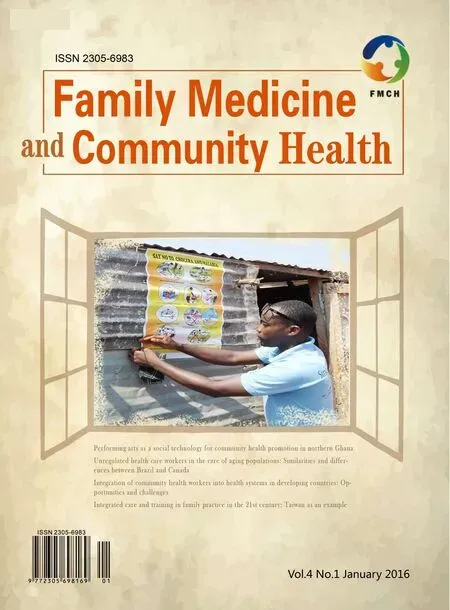A resident’s perspective on why global health work should be incorporated into family medicine residency training
Sarah Sweeney
A resident’s perspective on why global health work should be incorporated into family medicine residency training
Sarah Sweeney
Family physicians are well prepared to address global health issues. In this perspective a family medicine resident reflects on her experience working on a global health project in Guatemala and why this type of experience should be incorporated into family medicine residency training.
We sat in a circle in the front room of a simple cement home – a family physician and a social worker both with decades of experience in global health work, me, a second year family medicine resident, ten Guatemalan women artisans, and two Guatemalan community organizers at work for the NGO that had brought us together. Gentle afternoon sunshine filtered through an open door, the air was sticky, and children passed through the room, quietly inspecting their guests.
The topic of the day was the Papanicolaou test, a deceptively simple topic chosen by our hosts through conversations in the months before our arrival in Guatemala. The previous day in another community, we had learned that the Papanicolaou test, a screening test for cervical cancer, was a source of community interest,confusion, and fear.
Using a dramatization of a patient–health care provider visit, we facilitated a discussion on the difference between infections and cancer, bringing out a shared fear of birth control causing cervical cancer, and allowing storytelling to reveal underlying community issues such as domestic violence and in fidelity. From this session, we developed a health education module to facilitate this discussion with other groups of women in the community.
As we discussed the session later that day with our Guatemalan colleagues, we explored issues of access to cervical cancer screening,national-level public health campaigns, the education of our Guatemalan colleagues, and the mental health of women and families in the community in the context of historical trauma and ongoing domestic violence. We talked about how to engage local Guatemalan general practitioners and on the transfer of health knowledge globally. Our conversations were not bound by field, organ system, sex, or age. They were rooted in ideas of improved health efficacy at individual and community levels. Our vision for future steps in our shared project was not bound by a narrow set of skills.
So, what can family physicians bring to the field of global health and how can we help eliminate health inequalities on a global scale? My work in Guatemala helped me to realize even more deeply that the family physician is uniquely prepared to address globalhealth issues. We work at the intersection of individual and community health, and it is our broad knowledge of health across the lifespan and across organ systems in the context of family and community that has made us a backbone of highly effective health systems. As a discipline, we must evolve in a way that emboldens us to share knowledge across barriers and reduce inequalities in our backyards and abroad in less fractured, less disease-specific ways. By integrating global health work into residency experiences, such as mine in Guatemala,we can give future family physicians the knowledge, skills,and con fidence to do this.
Con flict of interest
The author declares no conflict of interest.
Funding
This research received no specific grant from any funding agency in the public, commercial, or not-for-pro fit sectors.
Sarah Sweeney, MD
Family Medicine and Community Health, University Hospitals Case Medical Center, 11100 Euclid Avenue, Bolwell 1200,Cleveland, OH 44107, USA
Tel.: +440-724-4225
E-mail:
sarah.sweeney@uhhospitals.org
20 July 2015;
Accepted 20 November 2015
 Family Medicine and Community Health2016年1期
Family Medicine and Community Health2016年1期
- Family Medicine and Community Health的其它文章
- Implementation of a novel train-the-trainer program for pharmacists in China
- Report on the International Symposium on Suboptimal Health Status,Inner Mongolia
- Editorial
- Conversations in accountability: Perspectives from three charities
- Traditional knowledge in HIV/AIDS treatment and prevention program in northern Uganda
- Editor-in-Chief & Guest Editor
